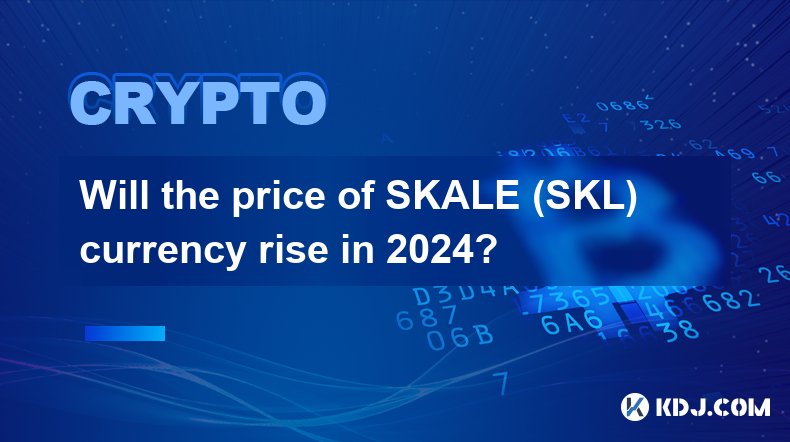-
 Bitcoin
Bitcoin $97,219.4672
1.63% -
 Ethereum
Ethereum $1,820.8950
1.13% -
 Tether USDt
Tether USDt $1.0001
0.02% -
 XRP
XRP $2.1327
-0.43% -
 BNB
BNB $602.3281
0.03% -
 Solana
Solana $147.7911
1.09% -
 USDC
USDC $0.9999
-0.01% -
 Dogecoin
Dogecoin $0.1725
1.12% -
 Cardano
Cardano $0.6706
0.13% -
 TRON
TRON $0.2489
1.41% -
 Sui
Sui $3.3512
1.53% -
 Chainlink
Chainlink $13.8526
1.44% -
 Avalanche
Avalanche $19.6299
-1.30% -
 UNUS SED LEO
UNUS SED LEO $8.7562
0.40% -
 Stellar
Stellar $0.2611
-0.23% -
 Shiba Inu
Shiba Inu $0.0...01279
1.26% -
 Toncoin
Toncoin $3.0266
0.40% -
 Hedera
Hedera $0.1765
0.37% -
 Bitcoin Cash
Bitcoin Cash $369.4993
2.08% -
 Hyperliquid
Hyperliquid $21.1995
1.68% -
 Litecoin
Litecoin $89.5955
4.54% -
 Polkadot
Polkadot $3.9568
0.63% -
 Dai
Dai $1.0002
0.01% -
 Monero
Monero $282.5473
-1.06% -
 Bitget Token
Bitget Token $4.2199
-1.10% -
 Ethena USDe
Ethena USDe $1.0007
0.03% -
 Pi
Pi $0.5835
0.91% -
 Pepe
Pepe $0.0...08266
4.18% -
 Bittensor
Bittensor $367.8815
0.84% -
 Uniswap
Uniswap $4.8814
-0.32%
Will the price of SKALE (SKL) currency rise in 2024?
The future price of SKALE (SKL) is influenced by network adoption, market volatility, competition, token economics, and potential catalysts like developer adoption, partnerships, and DeFi integration.
Dec 08, 2024 at 11:46 am

Will the Price of SKALE (SKL) Currency Rise in 2024?
The future price performance of SKALE (SKL) is a topic of keen interest among cryptocurrency enthusiasts and investors. While it is impossible to predict with certainty whether the price will rise in 2024, this article will delve into various factors that could influence its trajectory, providing a comprehensive analysis to aid in making informed decisions.
SKALE Network: An Overview
SKALE is a high-throughput, low-latency blockchain network designed for scalability, enabling developers to build decentralized applications (dApps) with high transaction capacity and fast confirmation times. The SKL token, the native utility token of the SKALE ecosystem, is used for network governance, transaction fees, and staking.
Factors Influencing SKL Price:
Numerous factors can impact the price of SKL:
- Network Adoption: The adoption and usage of the SKALE network by developers and dApps are crucial. Wider adoption can drive demand for SKL as more users and projects utilize its infrastructure.
- Market Volatility: The cryptocurrency market is notoriously volatile, with prices subject to sudden and significant fluctuations. External factors, such as global economic events and regulatory changes, can affect overall market sentiment and influence SKL's price.
- Competition: The competitive landscape within the blockchain industry is intense, with several other platforms targeting high-performance and scalability. SKALE's success in attracting and retaining developers and users will be a key factor in driving demand for SKL.
- Token Economics: The supply and distribution of SKL can influence its price. The total supply is fixed at 10 billion, and the release schedule and token burn mechanisms can affect its scarcity and value.
- Team and Technology: The team behind SKALE and the project's ongoing development are important factors. A strong team with a proven track record can inspire confidence in investors, while technological advancements can enhance the network's capabilities and drive adoption.
Potential Catalysts for Price Increase
Several potential catalysts could contribute to a price increase for SKL in 2024:
- Expanding Developer Adoption: The network's ease of use, low transaction costs, and high performance could attract a growing number of developers, leading to an increase in dApp development and network utilization.
- Strategic Partnerships: SKALE has announced partnerships with reputable organizations such as Microsoft, enabling it to tap into new markets and expand its ecosystem. Such alliances can enhance SKL's legitimacy and value.
- DeFi Integration: The increasing popularity of decentralized finance (DeFi) applications could drive demand for SKALE as a platform for building scalable and secure DeFi protocols.
- Increased Institutional Adoption: Institutional investors and funds have shown growing interest in blockchain technology. A broader adoption of SKALE by institutional players could provide a significant boost to its price.
Disclaimer:info@kdj.com
The information provided is not trading advice. kdj.com does not assume any responsibility for any investments made based on the information provided in this article. Cryptocurrencies are highly volatile and it is highly recommended that you invest with caution after thorough research!
If you believe that the content used on this website infringes your copyright, please contact us immediately (info@kdj.com) and we will delete it promptly.
- Tron (TRX) is catching the market's attention with its current price of $0.244, holding steady above its key support level of $0.24
- 2025-05-08 06:45:13
- Bitcoin Could Be Getting Closer to Having a Place at the Government Table
- 2025-05-08 06:45:13
- Don't Miss BTFD at $0.0002—Next Crypto To Explode with 8900% ROI as PENGU Goes Walmart and SNEK Gets Global!
- 2025-05-08 06:40:13
- US Large-Cap Sustainable Funds Have Lost 5.93% of Their Value Year-to-Date
- 2025-05-08 06:40:13
- Shiba Inu (SHIB) Burn Rate Drops by 87%, Only 320814 Tokens Destroyed Today
- 2025-05-08 06:35:14
- Quant (QNT) Price Surged Past $88 as Investors Bought the Dip
- 2025-05-08 06:35:14
Related knowledge

Is Ethereum Layer2 fee low? How to use it cheaper?
May 08,2025 at 03:56am
The question of whether Ethereum Layer 2 solutions offer lower fees and how to use them more economically is a topic of great interest within the cryptocurrency community. Ethereum's Layer 2 solutions have been developed to address the high transaction fees and scalability issues associated with the main Ethereum network. In this article, we will delve ...

How to calculate Ethereum network fee? How to reduce transaction costs?
May 08,2025 at 02:15am
Understanding and managing Ethereum network fees is crucial for anyone involved in transactions on the Ethereum blockchain. The network fee, also known as gas fee, is the amount of Ether (ETH) required to successfully conduct a transaction or execute a smart contract on the Ethereum network. Calculating these fees and finding ways to reduce them can sig...

What is Ethereum Gas Fee? How to optimize Gas Fee to save costs?
May 08,2025 at 03:43am
Ethereum gas fees are a crucial aspect of interacting with the Ethereum blockchain. Understanding and optimizing these fees can significantly impact the cost-effectiveness of transactions and smart contract interactions. In this article, we will delve into what Ethereum gas fees are, how they are calculated, and provide detailed strategies for optimizin...

How to perform MOVE cross-chain transfer? What to do if the gas fee is too high?
May 07,2025 at 08:03pm
Introduction to MOVE Cross-Chain TransferCross-chain transfers have become an essential part of the cryptocurrency ecosystem, allowing users to move assets between different blockchain networks. One of the popular protocols for achieving this is the MOVE cross-chain transfer. This article will guide you through the process of performing a MOVE cross-cha...

How is the DYDX liquidation price calculated? How is the forced liquidation mechanism?
May 08,2025 at 06:49am
The DYDX liquidation price and the forced liquidation mechanism are crucial aspects of trading on the dYdX platform, a decentralized exchange that allows users to trade perpetual contracts. Understanding these concepts is essential for managing risk and maximizing potential returns. In this article, we will delve into the details of how the DYDX liquida...

Does DYDX support cross-chain? Is the transfer speed fast?
May 07,2025 at 05:56pm
Introduction to DYDXDYDX is a leading decentralized exchange (DEX) that primarily operates on the Ethereum blockchain. It is known for its advanced trading features, including perpetual contracts and margin trading. A common question among users is whether DYDX supports cross-chain functionality and how fast the transfer speeds are. In this article, we ...

Is Ethereum Layer2 fee low? How to use it cheaper?
May 08,2025 at 03:56am
The question of whether Ethereum Layer 2 solutions offer lower fees and how to use them more economically is a topic of great interest within the cryptocurrency community. Ethereum's Layer 2 solutions have been developed to address the high transaction fees and scalability issues associated with the main Ethereum network. In this article, we will delve ...

How to calculate Ethereum network fee? How to reduce transaction costs?
May 08,2025 at 02:15am
Understanding and managing Ethereum network fees is crucial for anyone involved in transactions on the Ethereum blockchain. The network fee, also known as gas fee, is the amount of Ether (ETH) required to successfully conduct a transaction or execute a smart contract on the Ethereum network. Calculating these fees and finding ways to reduce them can sig...

What is Ethereum Gas Fee? How to optimize Gas Fee to save costs?
May 08,2025 at 03:43am
Ethereum gas fees are a crucial aspect of interacting with the Ethereum blockchain. Understanding and optimizing these fees can significantly impact the cost-effectiveness of transactions and smart contract interactions. In this article, we will delve into what Ethereum gas fees are, how they are calculated, and provide detailed strategies for optimizin...

How to perform MOVE cross-chain transfer? What to do if the gas fee is too high?
May 07,2025 at 08:03pm
Introduction to MOVE Cross-Chain TransferCross-chain transfers have become an essential part of the cryptocurrency ecosystem, allowing users to move assets between different blockchain networks. One of the popular protocols for achieving this is the MOVE cross-chain transfer. This article will guide you through the process of performing a MOVE cross-cha...

How is the DYDX liquidation price calculated? How is the forced liquidation mechanism?
May 08,2025 at 06:49am
The DYDX liquidation price and the forced liquidation mechanism are crucial aspects of trading on the dYdX platform, a decentralized exchange that allows users to trade perpetual contracts. Understanding these concepts is essential for managing risk and maximizing potential returns. In this article, we will delve into the details of how the DYDX liquida...

Does DYDX support cross-chain? Is the transfer speed fast?
May 07,2025 at 05:56pm
Introduction to DYDXDYDX is a leading decentralized exchange (DEX) that primarily operates on the Ethereum blockchain. It is known for its advanced trading features, including perpetual contracts and margin trading. A common question among users is whether DYDX supports cross-chain functionality and how fast the transfer speeds are. In this article, we ...
See all articles





















































































